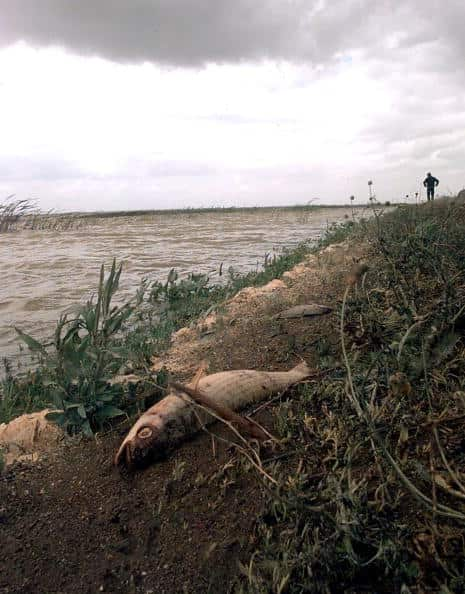As many as 70 out of the 229 natural World Heritage sites are at risk from extractive industries, the research from the World Wide Fund for Nature (WWF) and asset managers Aviva Investors and Investec showed on Thursday.
That includes most of Africa's 41 natural heritage sites, designated by UNESCO as areas that have outstanding natural beauty or have ecological significance.
The report aims to encourage investors to use their influence to stop companies from exploiting the sites.
"Protecting these iconic places is not only important in terms of their environmental worth, it is crucial for the livelihoods and future of the people who depend on them," said David Nussbaum, chief executive of the WWF.
Areas listed as under threat from resource extraction activities include Spain's Donana (Donyana) National Park, the Selous Game Reserve in Africa and the Belize Barrier Reef Reserve System in North America.
The Donana National Park was already affected by a toxic waste spill in 1998, when acid waste was released into the Guadiamar River after a dam failed. The Selous Game Reserve was added to the World Heritage Danger List in 2014 in part due to concerns regarding extractive activities within the reserve, the WWF report says.
The Selous Game Reserve was added to the World Heritage Danger List in 2014 in part due to concerns regarding extractive activities within the reserve, the WWF report says.

A dead fish lied by the Guadiamar river after a huge toxic waste spill in 1998, in southern Spain, seeped into ground water under Donana Park, one of Europe's wildlife reserves.
The reserve is home to some of Africa's best know animals, and is already affected by poaching.
The WWF said its estimate of the sites at risk was probably conservative.
The report said that extractive companies operating in heritage areas risk reputational damage, litigation and shareholder divestment.
British-based oil producer Soco International last year agreed not to drill for oil in the Democratic Republic of Congo's Virunga National Park after widespread protest from environmental campaigners, including the WWF.
Soco became one of the few oil companies to adopt a "no go" commitment not to operate in natural World Heritage sites.
In terms of market share, two-thirds of the MSCI World Metals and Mining Index companies have adopted "no go" policies, the report showed.
However, companies with "no go" commitments make up less than 2 percent of the MSCI Energy Index, with Royal Dutch Shell and Total SA comprising the minority.
There are 1,031 World Heritage sites across 163 states, most of them selected for cultural significance.
Share


